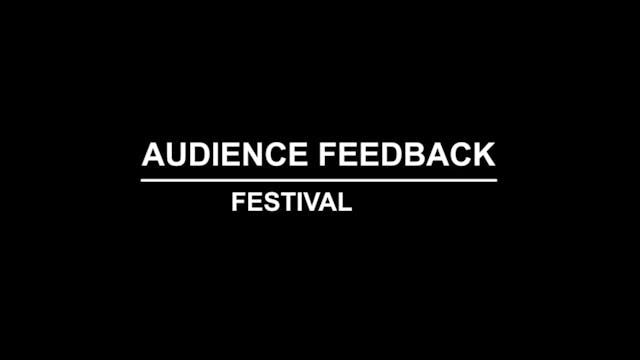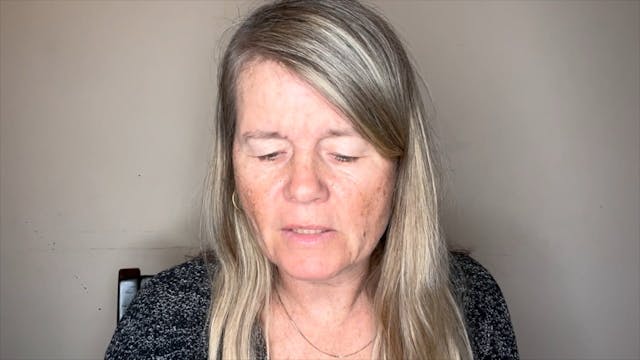THE BLUE PIPE short film DRAMA Festival review (interview)
FESTIVAL AUDIENCE FEEDBACK VIDEOS
•
4m 19s
THE BLUE PIPE, 8min., USA
Directed by Thomas Casler
A grieving college student posthumously receives a package from his dead mother containing mementos of her younger years, allowing him to connect with her in a new but unexpected way.
Get to know the filmmaker:
1. What motivated you to make this film?
I remember talking to my mom about the movie 20th Century Women, directed by Mike Mills, and she shared that one of the scenes that stuck with her was when Annette Benning’s character is talking to a young woman that’s becoming friends with her teenage son, and she says, “You get to see him out in the world, as a person. I never will.” It made me think about how there is this gap in knowledge between a parent and a child about what’s really going on in their life, like a veil that neither person can see through. Now, as an adult, my mom and I do open up about the times that we went out with friends, drank too much, smoked weed, and danced until 2 A.M.. And it did made me think, would we be friends if we were both the same age? Would we have fun if we hung out with each other, or would she think that I’m lame?
What also motivated me to make this film was the death of my father in 2011, and after more than ten years later, receiving some clarity about what his loss meant to me. I was never able to open up to him like I have now been able to do with my mom. I was never able to ask him what kind of music he listened to when he was in his early twenties, what clubs he would go to, or if he used a fake I.D. when he was underage. I wanted to show what it means to lose a parent before you get to truly know them, before you can lift the veil of the parent/child relationship and try to understand each other as adults.
2. From the idea to the finished product, how long did it take for you to make this film?
I wrote the script in 2020 and held onto it for a bit, not knowing if I was going to make it into a short or not. Then, in 2021, we began pre-production, shot the film in Spring of 2022, and got the finished product delivered later that year.
3. How would you describe your film in two words!?
Good grief.
4. What was the biggest obstacle you faced in completing this film?
The biggest obstacle I faced in completing this film came from when we were shooting the final scene, where Trace and his mom are laying down on the floor. That scene was difficult to direct, because it was the emotional landing point of the film, and I knew I wanted it to feel genuine. As the director, I felt the weight of responsibility in having to get my lead actor, Jonelle Foye-Hernandez, into the headspace of his character coming to grips with the loss of his mother. I was asking a lot out of him, so I wanted to make sure he felt safe enough to be vulnerable on camera. I ended up asking everyone who was not specifically needed to clear out of the room because I didn’t want my actors to feel too exposed. Now, I feel really proud of the final scene, because it does feel authentic in the way that closure comes not from sobbing or screaming, but from the quiet realization you get when you’re silently alone in a room.
5. What were your initial reactions when watching the audience talking about your film in the feedback video?
I was blown away from the audience’s response to The Blue Pipe. This film was a labor of love, not just by me, but by a lot of really talented people from the University of Texas at Austin. I put a lot of my own experiences with grief and loss into this film as well, and I was hoping that authenticity of the story I wrote would shine through. So when I heard people did notice that authenticity, and did notice the care I put into the story, it was the best thing I could have heard. It also helped that people enjoyed the end credits song, not just because I think it fit well in the film, but also because the band “Half Dream” is pretty great, and I’m glad I got to share that band with the audience.
6. When did you realize that you wanted to make films?
I always knew I was a storyteller. As a child, I would write short stories and comics, and my friends would make silly little videos on our iPod Touches. Around 2014, I started getting into independent films, and I appreciated how filmmakers such as Mark and Jay Duplass and Sam Raimi made these impactful films with little-to-no money. Films such as Safety Not Guaranteed, The Evil Dead, and Juno inspired me to want to make my own low-budget films, because they showed me that it could be done.
7. What film have you seen the most in your life?
Speaking of The Evil Dead, I think I have seen that movie like fifteen times now, which feels weird to say since that’s a very loud, gory film, and The Blue Pipe is none of those things. But the story of the making of The Evil Dead is very inspiring. A bunch of old high school friends decided they were going to make a horror movie in an abandoned cabin in the woods with little money and no distributor lined up, and it ended up spawning one of the biggest franchises in horror today. If Bruce Campbell can drench himself in fake blood for weeks straight, then I can at least make my little films.
8. What other elements of the festival experience can we and other festivals implement to satisfy you and help you further your filmmaking career?
Maybe, if your film wins an award, you can talk to the judge(s) on Zoom and talk about possible next steps for advancing a filmmaker’s career, or at least talk about their film in more detail.
9. You submitted to the festival via FilmFreeway. How has your experiences been working on the festival platform site?
I enjoy it! I think it’s an amazing resource. I don’t know how else filmmakers would find festivals to submit their films to. It’s really invaluable. It saves a lot of googling!
10. What is your favorite meal?
Can never go wrong with a carne asada or al pastor taco.
11. What is next for you? A new film?
My dream would be to make one more film in Austin, TX. I think there’s a really cool “art collective” vibe that’s hard to find anywhere else. However, I’m still figuring out what that film would look like. I have already made one romantic comedy and one dramedy. I’ve always wanted to make a horror film. We will just have to see
Up Next in FESTIVAL AUDIENCE FEEDBACK VIDEOS
-
MY METHOD short film DIVERSITY Festiv...
MY METHOD, 15min., Germany
Directed by Kaze Uzumaki
A rising actor reaches stardom by taking method acting harmfully serious. Things escalade when he tries to teach others his way by forcing them to "be the role".
http://www.uzumaki-entertainment.com/Get to know the filmmaker:
1. What motiva...
-
THE BRIDGE TO NOWHERE short film DRAM...
THE BRIDGE TO NOWHERE, 8min., USA
Directed by Danilo Ernaldo Rodriguez
A couple deeply intertwined must face reality and come to terms with the hardest decision in life, letting go of those you love. A small glimpse into this abusive relationship can hopefully inspire those who need to take that ... -
HATE CAN KILL short film DIVERSITY Fe...
HATE CAN KILL, 30min., Canada
Directed by Imtiaz Popat
Hate Can Kill is a documentary by Imtiaz Popat that looks at the community response to the murder of Nirmal Singh Gill, a caretaker at the Guru Nanak Gurudwara in Surrey BC by five white supremacist skinheads in 1998
https://www.facebook.co...


